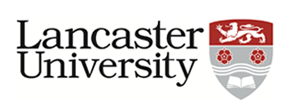信息系统专业详解
信息科学技术专业培养具有扎实的数学、物理、电子和计算机的基础知识,系统地掌握光学信息处理技术、现代电子学技术和计算机应用技术的基本技能,能在光通信、光学信息处理、以及相关的电子信息科学、计算机科学等信息技术领域、特别是光机电算一体化产业从事科学研究、产品设计和开发、生产技术或管理的面向二十一世纪的高级专门人才
主要课程:软件系统开发、人机互换、互联网与媒体科技、系统工程、数据技术、数据库操作、信息检索等
伦敦大学学院
Information Science MSc
The MSc in Information Science is an ideal career development programme for librarians, archivists and other information professionals who wish to update their management skills and experience in the use of information technology, the internet and digital media, or for those from a computer-oriented background who wish to specialise in information fields.
Tuition fees (2018/19):Overseas: £20,600 (FT)
Entry requirements
A minimum of a second-class Bachelor's degree from a UK university or an overseas qualification of an equivalent standard. An appropriate professional qualification is preferred. Applicants with relevant experience in an information or computing discipline may also be considered.
English language requirements
If your education has not been conducted in the English language, you will be expected to demonstrate evidence of an adequate level of English proficiency.
Good level: Overall grade of 7.0 with a minimum of 6.5 in each of the subtests.
About this degree
The programme includes both practical and theoretical work through which students develop a deeper understanding of not just the technologies themselves but also the implications of applying and managing these technologies in varied information environments. The wide range of optional modules allows students to tailor the programme to fit their individual career specialisms and needs.
Students undertake modules to the value of 180 credits.
The programme consists of five core modules (75 credits), three optional modules (45 credits) and a research dissertation (60 credits).
Core modules
Systems Management
Internet Technologies
Database Systems Analysis and Design
Introduction to Programming and Scripting
Fundamentals of Information Science
Optional modules (indicative list):
Digital Resources in the Humanities
Electronic Publishing
Individual Approved Study
Introduction to Digital Curation
Introduction to Digitisation
Knowledge Representation and Semantic Technologies
Legal and Social Aspects
Management
Server Programming and Structured Data
XML
The list above only indicates commonly chosen options. In principle, students may apply to take any module offered within the department, or in other departments, with the tutors' permission.
Dissertation/report
All MSc students undertake an independent research project on a specific aspect of information technology and its application, which culminates in a dissertation of c. 12,000 words
Teaching and learning
The programme is delivered through a combination of lectures, seminars, computer laboratory practicals and classroom practicals, with a strong emphasis on informal teaching, discussion, and the acquisition of practical skills. Assessment is through a mixture of essays, reports, examination, and practical projects such as website design and data modelling.
Careers
The MSc in Information Science prepares students for management roles in the information industries with an emphasis on technology, for example: information systems manager, systems librarian, web manager, information architect, knowledge manager, data manager, or indeed any information management role. Our graduates find work all over the world with electronic systems for managing, retrieving, distributing and archiving information.
Recent career destinations for this degree
Digital Delivery Co-ordinator, Macmillan
Engineer, Formosa Soft
Research Services Librarian, Slaughter and May
Technology Auditor, The Royal Bank of Scotland (RBS)
Executive Director, Open Planets Foundation
Application fee: There is an application processing fee for this programme of £75 for online applications and £100 for paper applications
Who can apply?
The programme is particularly suitable for those who wish to develop their computer-related management skills with a view to improving their employment opportunities in all areas of information management, library, records and archives work. It will also appeal to students interested in applying and managing technology effectively within any information environments.
What are we looking for?
When we assess your application we would like to learn:
why you want to study Information Science at graduate level
why you want to study Information Science at UCL
what particularly attracts you to this programme
how your academic and professional background meets the demands of this programme
where you would like to go professionally and/or academically with your degree
Information Security MSc
The Information Security MSc offers a specialist programme designed to provide a fundamental understanding of information security and to convey practical engineering skills. There are good prospects for highly trained information security professionals and there is a shortage of trained personnel in this area.
Tuition fees (2018/19):Overseas: £26,670 (FT)
Entry requirements
A minimum of an upper second-class UK Bachelor's degree in computer science, electrical engineering or mathematics, or an overseas qualification of an equivalent standard. Relevant work experience may also be taken into account.(你都学了)
English language requirements
If your education has not been conducted in the English language, you will be expected to demonstrate evidence of an adequate level of English proficiency.
Good level: Overall grade of 7.0 with a minimum of 6.5 in each of the subtests.
About this degree
Students develop an advanced knowledge of information security and an awareness of the context in which information security operates in terms of safety, environmental, social and economic aspects. They gain a wide range of intellectual, practical and transferable skills, enabling them to develop a flexible professional career in IT.
Students undertake modules to the value of 180 credits.
The programme consists of four core modules (60 credits), four optional modules (60 credits) and a research project (60 credits).
Core modules
Computer Security I (15 credits)
Computer Security II (15 credits)
Introduction to Cryptography (15 credits)
Research in Information Security (15 credits)
Optional modules
Students choose 60 credits from the following:
Applied Cryptography (15 credits)
Cryptanalysis (15 credits)
Cybercrime (15 credits)
Distributed Systems and Security (15 credits)
Information Security Management (15 credits)
Language Based Security (15 credits)
Malware (15 credits)
People and Security (15 credits)
Philosophy, Politics and Economics of Security and Privacy (15 credits)
Privacy Enhancing Technologies (15 credits)
Please note: the availability and delivery of optional modules may vary, depending on your selection.
Dissertation/report
All MSc students undertake an independent research project which culminates in a dissertation (maximum length of 120 pages) and an oral presentation.
Teaching and learning
The programme is delivered through a combination of lectures, seminars, problem classes, tutorials, laboratory classes and projects. Assessment is through written examinations, presentations, vivas, tests, coursework, written reports, formal presentations and the research project.
Careers
UCL graduates are keenly sought after by the world's leading organisations. UCL Computer Science graduates are particularly valued as a result of the department's strong international reputation, strong links with industry, and ideal location close to the City of London. Our graduates secure careers in a wide variety of organisations, e.g. with global IT consultancies, as IT analysts with City banks, or as IT specialists within manufacturing industries.
Recent career destinations for this degree
Information Security Expert, State Oil Company of Azerbaijan Republic
IT Risk and Cyber Security Associate, PwC
PhD Research Student in Computer Science, UCL
Security Engineer, Morgan Stanley
Technical Analyst, The Royal Bank of Scotland (RBS)
Application fee: There is an application processing fee for this programme of £75 for online applications and £100 for paper applications
Who can apply?
This MSc is designed to appeal to computer science, electrical engineering and mathematics graduates who wish to be involved with the security aspects of information technology. The programme is intended as a foundation to a rewarding career at the more advanced levels of information security.
What are we looking for?
When we assess your application we would like to learn:
why you want to study Information Security at graduate level
why you want to study Information Security at UCL
what particularly attracts you to this programme
how your academic and professional background meets the demands of this programme
what programming experience you have
where you would like to go professionally with your degree
伦敦大学国王学院
Mobile & Personal Communications MSc (Department of Informatics)
The Mobile & Personal Communications MSc offers graduates the opportunity to gain an in-depth understanding of the fundamental principles of modern telecommunications systems, covering everything from mobile wireless networks to signal processing. The course is an ideal study pathway for graduates who wish to work in telecommunications or continue with further academic study.
Course detail
Description
The Mobile & Personal Communications MSc covers the latest aspects of personal and mobile wireless communication technology, communication networks, advanced digital communications theory and techniques and signal processing. You will study Digital Communications, Random Variables & Stochastic Processes, Communication Theory as well Mobile and Personal Communication Systems. There are opportunities to explore a broad range of optional modules allowing you the freedom to develop your study pathway to reflect your interests. You will complete the course in one year, studying September to September and taking a combination of required and optional modules totalling 180 credits, including 60 credits that will come from an individual project of 15,000 words.
Special Notes
The Department of Informatics consists of expertise in four computer science groups (Agents & Intelligent Systems, Planning, Algorithm & Bioinformatics, and Software Modelling & Applied Logic), and groups in robotics and telecommunications. The selection of available optional taught course modules reflects the range of research interests in the department. All years of our programmes are kept under constant review and we reserve the right to change and improve them at any time.
Entry requirements
Bachelors degree with a minimum high 2:2 honours in electronics, electrical engineering, computer science, applied mathematics or physics.
English Language requirements Band E 6.0 overall with a minimum of 5.5 in each skill
Applications must be made online using King’s online application portal apply.kcl.ac.uk and a non-refundable application fee of £55 applies.
Fees:Full time overseas fees: £23,940 per year (2018/19)
Structure
Required Modules
Courses are divided into modules. Each year you will be required to take modules totalling 180 credits
l Individual Project (60 credits)
l Digital Communications (15 credits)
l Random Variables and Stochastic Processes (15 credits)
l Communication Theory (15 credits)
l Mobile and Personal Communications Systems (15 credits)
Optional Modules
Students will also choose modules totalling 45 credits from a range that may typically include:
l Fundamentals of Digital Signal Processing (15 credits)
l Optical Communications (15 credits)
l Telecommunications Networks I (15 credits)
l Telecommunications Networks II (15 credits)
l Topics on Data and Signal Analysis (15 credits)
l Network Theory (15 credits)
the Department of Informatics reviews the modules offered on a regular basis to provide up-to date, innovative and relevant programmes of study. Therefore, modules offered may change. We suggest that you keep an eye on the course finder on our website for updates.
Telecommunications & Internet Technology MSc
The Telecommunications & Internet Technology MSc based in the Department of Informatics will provide you with an advanced understanding of all aspects of telecommunications networks and the internet. The study pathway will allow you to explore the latest techniques, mechanisms, protocols and network architectures and conduct your own research project.
l You will gain a thorough technical knowledge of the current practice in both wireless, and wireline networks.
l Located in central London, giving access to major libraries and leading scientific societies, including the IET. Our Telecommunications, Computer Science and Robotics programmes are based in new, state of the art, facilities.
l Frequent access to speakers of international repute through seminars and external lectures, enabling you to keep abreast of emerging knowledge in the telecommunications field.
l Flexible study pathway that covers the basic principles of communications systems and extends to structural aspects and design of future packet-switched networks.
l The Department of Informatics has a reputation for delivering research-led teaching and project supervision from leading experts in their field.
Course detail
Description
Offers an appreciation of the evolution of mobile technology and Internet protocols together with a detailed understanding of the key technologies that will support the ecosystem of the future Internet.
The programme provides a holistic view on the technologies and related architectural paradigms for the evolution of the Internet to the Mobile Internet.
The key strength of the programme is its close links with the state-of-the-art research environment at the Centre for Telecommunications Research, providing a rich intellectual environment for students to achieve their goals and gain strong employment prospects,be highly competitive in their employability aspects.
In addition to the taught modules students are required to complete an individual project (and write a Thesis) to be eligible for the award of the MSc degree.
Special Notes
The Department of Informatics consists of expertise in four computer science groups (Agents & Intelligent Systems, Planning, Algorithm & Bioinformatics, and Software Modelling & Applied Logic), and groups in robotics and telecommunications. The selection of available optional taught course modules reflects the range of research interests in the department. All years of our programmes are kept under constant review and we reserve the right to change and improve them
Entry requirements
Bachelors degree with a minimum 2:1 honours in electronics, electrical engineering, computer science, applied mathematics or physics
English Language requirements Band E 6.0 overall with a minimum of 5.5 in each skill
Application procedure
Applications must be made online using King’s online application portal apply.kcl.ac.uk and a non-refundable application fee of £55 applies. Your application will be reviewed by an admissions tutor and we aim to respond to your application within four to six weeks, although this may take longer during busy and holiday periods.
Fees:Full time overseas fees: £23,940 per year (2018/19)
Structure
Required Modules
King’s College London reviews the modules offered on a regular basis to provide up-to-date, innovative and relevant programmes of study. Therefore, modules offered may change. We suggest that you keep an eye on the course finder on our website for update.
Courses are divided into modules. Each year you are required to take modules totalling 180 credits
l Individual project (60 credits)
l Optical Communications (15 credits)
l Telecommunications Networks I (15 credits)
l Network Theory (15 credits)
l Telecommunications Networks II (15 credits)
Optional Modules
l Students are required to take 60 credits from a range of optional modules that may typically include:
l Digital Communications (15 credits)
l Fundamentals of Digital Signal Processing (15 credits)
l Random Variables & Stochastic Processes (15 credits)
l Communications Theory (15 credits)
l Mobile and Personal Communications (15 credits)
l Software Engineering of Internet Applications (15 credits)
l Topics on Data and Signal Analysis (15 credits)
Intelligent Systems MSc
The Intelligent Systems MSc degree course is designed to give graduates the understanding, practical knowledge and expertise to evaluate, design and build intelligent systems using an extensive range of tools and techniques.
Course detail
Description
The Intelligent Systems MSc will prepare you for work developing intelligent control and engineering systems. You will study Artificial Intelligence, Agents and Multi-agent Systems, Pattern Recognition, Computer Vision and Biologically Inspired Methods. There are also opportunities to explore a broad range of optional modules allowing you the freedom to develop your study pathway to reflect your interests.
You will complete the course in one year, studying September to September and taking a combination of required and optional modules totalling 180 credits, including 60 credits that will come from an individual project of 15,000 words.
Special Notes
The Department of Informatics consists of expertise in four computer science groups (Agents & Intelligent Systems, Planning, Algorithm & Bioinformatics, and Software Modelling & Applied Logic), and groups in robotics and telecommunications. The selection of available optional taught course modules reflects the range of research interests in the department. All years of our programmes are kept under constant review and we reserve the right to change and improve them at any time.
Entry requirements
Minimum requirements:
BSc or BEng with 2:1 honours (or international equivalent) in Engineering or other relevant subject e.g. physics, mathematics, computer science. (你属于工科)
Additional Requirements:
Applicants should also have :
a sound background in basic mathematics, in particular familiarity with standard concepts of calculus, linear algebra, differential equations and elementary probability theory.
competence in computer programming to the level expected at the end of the first year of a BSc honours degree in computer science.
Application procedure
Applications must be made online using King’s online application portal apply.kcl.ac.uk and a non-refundable application fee of £55 applies.
Fees:Full time overseas fees: £22,800 p.a. (2017/18)*
Structure
Required Modules
Courses are divided into modules. Each year you will normally take modules totalling 180 credits.
Individual Research Project and Dissertation (60 credits)
Optional Modules
Students will also choose modules totalling a minimum of 60 credits from a range that may typically include:
l Artificial Intelligence (15 credits) *
l Agents and Multi-Agent Systems (15 credits) *
l Computer Vision (15 credits) *
l Biologically Inspired Methods (15 credits) *
l Pattern Recognition (15 credits) *
Students are required to take additional credits to bring their total for the year to 180 credits from a range of optional modules that may typically include:
l Advanced Research Topics (15 credits)
l Fundamentals of Digital Signal Processing (15 credits)
l Security Engineering (15 credits)
l Computational Models (15 credits) *
l Distributed Systems (15 credits) *
l Group Project (15 credits)
l Optimisation Methods (15 credits) *
l Robotics Systems (15 credits) *
l Text Searching and Processing (15 credits) *
l Topics on Data and Signal Analysis (15 credits)
l Machine learning (15 credits)
*These modules are not available if you have previously studied in the Department of Informatics and have already taken this module at level six.
The Department of Informatics reviews the modules offered on a regular basis to provide up-to-date, innovative and relevant programmes of study. Therefore, modules offered may change. We suggest that you keep an eye on the course finder on our website for updates.
Informatics
Programme description
process and communicate information. Edinburgh has a long-standing tradition of world-class research and teaching in informatics, a discipline central to a new enlightenment in scholarship and learning, and critical to the future development of science, technology and society.
This is our most sought-after taught MSc. We offer a wide choice of courses, spanning established disciplines such as cognitive and computer science as well as emerging areas such as bioinformatics. The programme takes full advantage of our expertise in research and teaching, including specialisms unique to Edinburgh.
Programme structure
You follow two taught semesters of lectures, tutorials, project work and written assignments, after which you will learn research methods before individual supervision for your project and dissertation.
Compulsory courses:
l Informatics Research Review
l Informatics Project Proposal
l Introduction to Java Programming (for students who do not already meet the programming requirements for the taught masters)
l Dissertation
You will choose a ‘specialist area’ within the programme, which will determine the choice of your optional courses:
l Analytical and Scientific Databases
l Bioinformatics Systems and Synthetic Biology
l Cognitive Science, Computer Systems, Software Engineering and High Performance Computing
l Intelligent Robotics
l Agents, Knowledge and Data
l Machine Learning
l Natural Language Understanding
l Neural Computation and Neuroinformatics
l Programming Languages
l Theoretical Computer Science
There are 100 optional courses available to MSc Informatics students, including courses within specialist areas unique to the programme.
Career opportunities
Our graduates are well regarded by potential employers worldwide. Many go on to work in the technology industry as software engineers, IT consultants, programmers and developers, and may work with the software and hardware giants that have become household names. Others go on to further study and research. Recent graduates are now employed as software developers and engineers, programmers, games designers and analysts for companies including Airbus, Citigroup, NCR Corporation, BT and Skyscanner..
Entry requirements
A UK 2:1 honours degree, or its international equivalent, in informatics, artificial intelligence, cognitive science, computer science, electrical engineering, linguistics, mathematics, philosophy, physics or psychology, plus experience in computer programming.
During your degree you must have completed the equivalent to 60 credits of mathematics that have typically covered the following subjects/topics: Calculus (differentiation and integration), Linear Algebra (vectors and multi-dimensional matrices), Discrete Mathematics and Mathematical reasoning (eg. Induction and reasoning, Graph theoretic models, proofs), and Probability (concepts in discrete and continuous probabilities, Markov Chains etc. )
English language requirements
IELTS Academic: total 6.5 with at least 6.0 in each component
Fees £29,100
Artificial Intelligence
Programme description
This MSc is taught at the UK’s longest established centre for artificial intelligence, which remains one of the best in the world.
Our research draws on neuroscience, cognitive science, linguistics, computer science, mathematics, statistics and psychology to span knowledge representation and reasoning, the study of brain processes and artificial learning systems, computer vision, mobile and assembly robotics, music perception and visualisation. We aim to give you practical knowledge in the design and construction of intelligent systems so you can apply your skills in a variety of career settings.
Programme structure
You follow two taught semesters of lectures, tutorials, project work and written assignments, after which you will learn research methods before individual supervision for your project and dissertation.
Compulsory courses:
l Informatics Research Review
l Informatics Project Proposal
l Introduction to Java Programming (for students who do not already meet the programming requirements for the taught masters)
l Dissertation
You will choose a 'specialist area' within the programme, which will determine the choice of your optional courses:
l Intelligent Robotics
l Agents, Knowledge and Data
l Machine Learning
l Natural Language Processing
You can choose from a variety of optional courses including:
l Advanced Vision
l Algorithmic Game Theory and Its Applications
l Machine Learning and Pattern Recognition
l Natural Language Understanding
l Robotics: Science and Systems
l Human-Computer Interaction
l Software Architecture, Process and Management
l Text Technologies for Data Science
l Computational Cognitive Neuroscience
Career opportunities
Our students are well prepared for both employment and academic research. The emphasis is on practical techniques for the design and construction of intelligent systems, preparing graduates to work in a variety of specialisms, from fraud detection software to spacecraft control.
Recent graduates are now working as software developers and engineers, programmers and data analysts for companies such as HarperCollins, J.P. Morgan, Nokia, IBM, Amazon, Soundcloud and the Bank of England.
Entry requirements
A UK 2:1 honours degree, or its international equivalent, in informatics, artificial intelligence, cognitive science, computer science, electrical engineering, linguistics, mathematics, philosophy, physics or psychology, plus experience in computer programming.
During your degree you must have completed the equivalent to 60 credits of mathematics that have typically covered the following subjects/topics: Calculus (differentiation and integration), Linear Algebra (vectors and multi-dimensional matrices), Discrete Mathematics and Mathematical reasoning (eg. Induction and reasoning, Graph theoretic models, proofs), and Probability (concepts in discrete and continuous probabilities, Markov Chains etc. )
English language requirements
IELTS Academic: total 6.5 with at least 6.0 in each component
Fees:£29,100
Sensor & Imaging Systems
Programme description
This industry-focused programme - run jointly by the universities of Edinburgh and Glasgow - focuses on the principles, methods, techniques and technologies that underpin a vast range of needs in applications spanning from research to industry to medicine.(联合授课)
The programme is designed for students looking to develop the skills and knowledge that will open up opportunities in the many companies developing sensor and image based solutions.
Sensing and sensor systems are essential for advances in research across all fields of physics, engineering and chemistry and can be enhanced when multiple sensing functions are combined into arrays to enable imaging.
Industrial applications of sensor systems are ubiquitous: from mass-produced sensors found in modern smartphones and cars to the state-of-the-art, specialist high-value sensors routinely used in oil and gas recovery, scientific equipment, machine tools, medical equipment and environmental monitoring.
Programme structure
This programme is run over 12 months. The first semester of taught courses is run at the University of Glasgow and the second at the University of Edinburgh. The taught courses are followed by a research project, carried out at either university, leading to the production of your masters thesis.
Semester 1
Semester 1 is delivered at the University of Glasgow.
l Sensing and Imaging
l Imaging and Detectors
l Detection and Analysis of Ionising Radiation
l Circuits and Systems
l Optional course in physics or engineering
Semester 2
Semester 2 is delivered at the University of Edinburgh.
Two compulsory courses:
l Applications of Sensor and Imaging Systems
l Research Project Preparation
Two to four (depending on course weighting) optional courses in engineering and/or chemistry:
l Biophysical Chemistry
l Physical Techniques in Action
l BioSensors and Instrumentation
l Lab-on-Chip Technologies
l Microfabrication Techniques
l Electronic Product Design and Manufacture
l Technology & Innovation Management
Career opportunities
Sensor and imaging systems (SIS) underpin a vast range of societal, research and industrial needs. Sensing is essential for advances in capability across all fields of physics, engineering and chemistry and is enhanced when individual sensing units are configured in arrays to enable imaging and when multiple sensing functions are integrated into a single smart system.
Entry requirements
A UK 2:1 honours degree, or its international equivalent, in engineering, physics, chemistry or another relevant physical science. Entry is competitive, so we would prefer a UK first class honours degree, or a UK 2:1 honours degree supported by an MSc degree, or their international equivalents.
English language requirements
IELTS Academic: total 6.5 with at least 6.0 in each component
MSc Advanced Control and Systems Engineering
Course description
Control Engineering is a multi-disciplinary subject, with applications across a wide range of industrial sectors. The Control Systems Group in the School of Electrical and Electronic Engineering at the University of Manchester has been running an MSc course in Advanced Control and Systems Engineering since 1968. The course is geared for graduates from a variety of scientific and engineering disciplines.
The aims of the course are to:
provide an advanced education in control and systems engineering, emphasising modern theoretical developments and their practical application
give a sound fundamental understanding of the principles underlying the operation of control systems
enable students to apply modern control principles in various areas of industry
Students acquire a range of intellectual skills that cover the design, analysis and simulation of control systems. A strong emphasis is placed on practical and transferable skills through laboratory exercises and the use of software packages.
Fees
For entry in the academic year beginning September 2018, the tuition fees are as follows:
MSc (full-time)
International students (per annum): £24,000
Entry requirements
Academic entry qualification overview
The standard academic entry requirements for a masters course will be an upper second class UK honours degree, or international equivalent, in an electrical and electronic engineering discipline. Candidates from other engineering and scientific disciplines are encouraged to apply, provided they can demonstrate strength in mathematics and other suitable subjects such as dynamics, signals and systems or classical control.
English language
IELTS score of 6.5 overall with at least three sub-tests at 6.0 or above and no sub-test less than 5.5.
Course description
Control Engineering is a multi-disciplinary subject, with applications across a wide range of industrial sectors. The Control Systems Group in the School of Electrical and Electronic Engineering at the University of Manchester has been running an MSc course in Advanced Control and Systems Engineering since 1968. The course is geared for graduates from a variety of scientific and engineering disciplines.
The aims of the course are to:
provide an advanced education in control and systems engineering, emphasising modern theoretical developments and their practical application
give a sound fundamental understanding of the principles underlying the operation of control systems
enable students to apply modern control principles in various areas of industry
Students acquire a range of intellectual skills that cover the design, analysis and simulation of control systems. A strong emphasis is placed on practical and transferable skills through laboratory exercises and the use of software packages.
Course unit details
Typical course units include Control and Computer Laboratory, Linear Optimal Control, Intelligent Systems, Non-linear Controllers & Systems, Self-tuning and Adaptive Systems, Manufacturing Automation and Data Engineering, Fault Detection and Diagnosis, and Process Control Systems.
Course unit list
The course unit details given below are subject to change, and are the latest example of the curriculum available on this course of study.
|
EEEN60070 |
60 |
Mandatory |
|
|
EEEN60108 |
15 |
Mandatory |
|
|
EEEN60109 |
15 |
Mandatory |
|
|
EEEN60110 |
15 |
Mandatory |
|
|
EEEN60111 |
15 |
Mandatory |
|
|
EEEN60112 |
15 |
Mandatory |
|
|
EEEN60114 |
15 |
Mandatory |
|
|
EEEN60115 |
15 |
Mandatory |
|
|
EEEN60122 |
15 |
Mandatory |
布里斯托大学
MSc Image and Video Communications and Signal Processing
Programme overview
Audiovisual experiences are key drivers, not just for entertainment but also for business, security and technology development. Video accounts for about 80 per cent of all internet traffic and some mobile network operators have predicted that wireless traffic will double every year for the next 10 years - driven primarily by video. Visual information processing also plays a major role in other industries, such as healthcare, security, robotics and autonomous systems.
This challenging, one-year taught master’s degree covers a range of advanced topics in multimedia signal processing and communications. These include the properties and limitations of modern communication channels and networks, alongside the coding and compression methods required for efficient and reliable wired and wireless audio-visual transmission. It provides students with an excellent opportunity to acquire the necessary skills to enter careers in one of the most dynamic and exciting fields in ICT.
Entry requirements
An upper second-class honours degree (or international equivalent) in a numerate physical science or engineering discipline. Candidates with a lower class of degree, equivalent qualifications or relevant work experience may be admitted if they can demonstrate their potential for higher degree work.
6.5 overall, minimum 6.0 in all bands
Programme structure
· Year 1 (2018/19)
|
Unit name |
Unit code |
Credit points |
Status |
|
EENGM2010 |
10 |
Mandatory |
|
|
EENGM2100 |
10 |
Mandatory |
|
|
EENGM2500 |
10 |
Mandatory |
|
|
EENGM0007 |
10 |
Mandatory |
|
|
EENGM1400 |
10 |
Mandatory |
|
|
EENGM4100 |
10 |
Mandatory |
|
|
EENGM1411 |
10 |
Mandatory |
|
|
EENGM0006 |
10 |
Mandatory |
|
|
EENGM4021 |
10 |
Mandatory |
|
|
EENGM8000 |
60 |
Mandatory |
|
|
EENGM0004 |
20 |
Mandatory |
|
|
EENGM0016 |
10 |
Mandatory |
|
|
MSc Image and Video Communication and Signal Processing |
|
180 |
|
Careers
This one-year MSc programme covers all aspects of current and future image and video communications and associated signal processing technologies. It will prepare you for a diverse range of exciting careers - not only in the communications field, but also in areas such as management consultancy, project management, finance and government agencies.
Our graduates have gone on to have rewarding careers in some of the leading multinational communications companies: Huawei, China Telecom, Toshiba, China Mobile and Intel, for example. Some graduates follow a more research-oriented career path, with a number of students going on to study for PhDs at leading universities.
MSc Communication Networks and Signal Processing
Programme overview
This is a challenging one-year taught master’s degree focusing on advanced topics around communication networks (fixed and wireless) and related signal processing, including associated enabling technologies. It provides an excellent opportunity to develop the skills needed for careers in some of the most dynamic fields in communication networks.
This programme builds on the internationally recognised research strengths of the Communications Systems and Networks, High Performance Networks and Photonics research groups within the Smart Internet Lab. The groups conduct pioneering research in a number of key areas, including network architectures, cross-layer interaction, high-speed optical communications and advanced wireless access.
There are two taught units related to optical communications: Optical Networks and Data Centre Networks. Optical Networks focuses on wavelength division multiplexed (WDM) networks, time division multiplexed (TDM) networks including SDH/SONET and OTN, optical frequency division multiplexed networks, and optical sub-wavelength switched networks. Data Centre Networks focuses on networks for cloud computing, cloud-based networking, grid-computing and e-science. There is a further networking unit: Networked Systems and Applications, which provides a top-down study of networking system support for distributed applications, from classical web and email to telemetry for the Internet of things.
The programme is accredited by the Institution of Engineering and Technology, one of only a handful of accredited programmes in this field in the UK.
Fees for 2018/19:Overseas: full-time£21,100
Entry requirements
An upper second-class honours degree (or international equivalent) in a numerate physical science or engineering discipline. Candidates with a lower class of degree, equivalent qualifications or relevant work experience may be admitted if they can demonstrate their potential for higher degree work.
6.5 overall, minimum 6.0 in all bands
Programme structure:
· Year 1 (2018/19)
|
Unit name |
Unit code |
Credit points |
Status |
|
EENGM2100 |
10 |
Mandatory |
|
|
EENGM2500 |
10 |
Mandatory |
|
|
EENGM0007 |
10 |
Mandatory |
|
|
EENGM1400 |
10 |
Mandatory |
|
|
EENGM2001 |
10 |
Mandatory |
|
|
EENGM4221 |
10 |
Mandatory |
|
|
EENGM4211 |
10 |
Mandatory |
|
|
EENGM8000 |
60 |
Mandatory |
|
|
EENGM0003 |
10 |
Mandatory |
|
|
EENGM0004 |
20 |
Mandatory |
|
|
EENGM0008 |
10 |
Mandatory |
|
|
EENGM0009 |
10 |
Mandatory |
|
|
MSc Communication Networks and Signal Processing |
|
180 |
|













